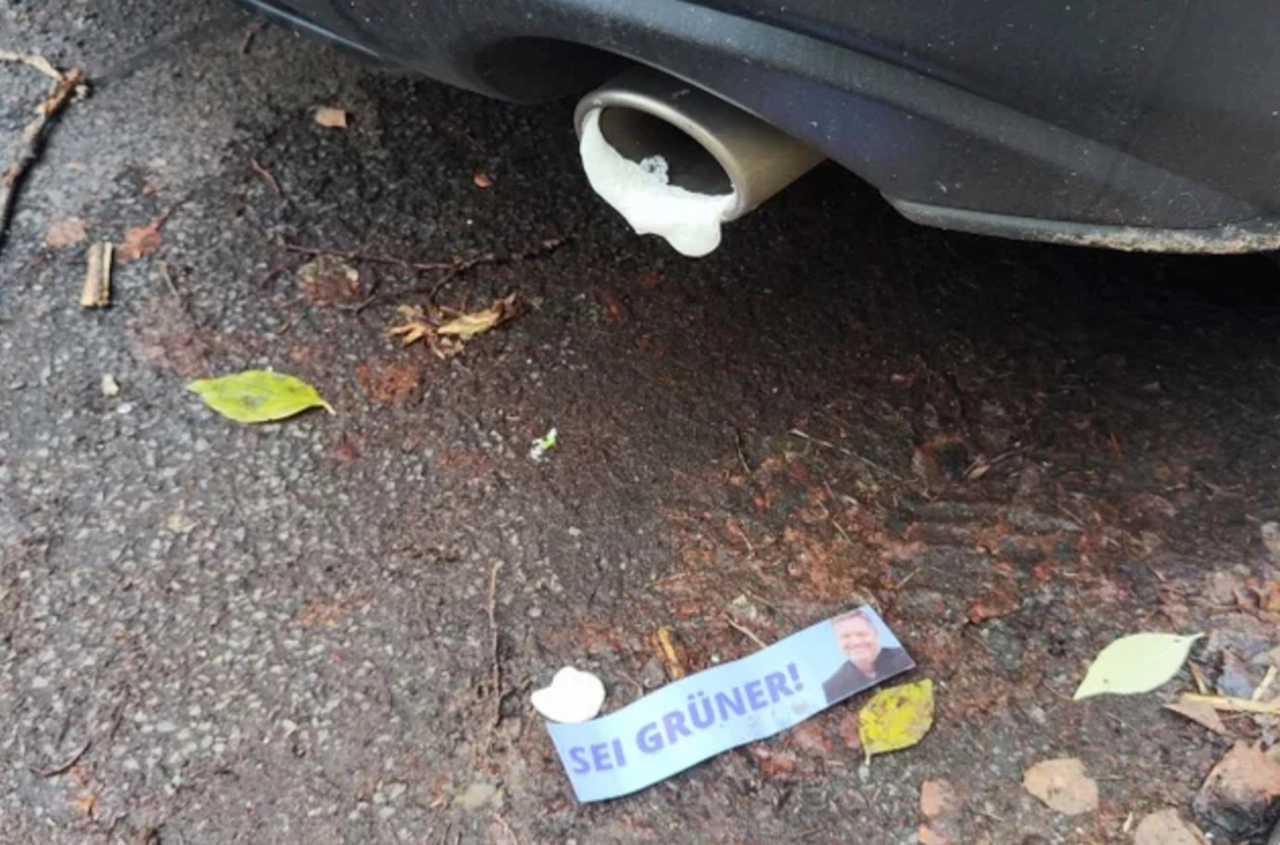In what appears to be a sophisticated Russian disinformation operation, over 270 vehicles in Berlin, Brandenburg, Bavaria, and Baden-Württemberg have been vandalized in a scheme designed to inflame public sentiment against the Green Party and its prominent figure, Federal Minister of Economics Robert Habeck.
Russian FSB operation
The operation, which initially appeared to be the work of radical environmental activists, involved damaging vehicles by filling their exhaust pipes with construction foam and placing stickers bearing Habeck's image with the slogan "Be greener!" on the targeted vehicles.
According to SPIEGEL's reporting, the young recruits were offered €100 per damaged vehicle and were provided detailed instructions for carrying out the vandalism. German security authorities have uncovered evidence suggesting that the perpetrators were not climate activists but rather individuals recruited through online messaging platforms by Russian operatives.
Interestingly, the operation falls within the broader tactic of the Russian FSB to switch to a massive use of "low-level agents" or "one-off agents." In particular, such cases have also intensified in Ukraine, where FSB, using messaging apps, has been recruiting young unemployed individuals to burn soldiers' cars using Molotov cocktails or bring explosives to military enlistment offices. In two last cases, perpetrators were blown up together with explosive devices they brought once they entered the office, using phones to detonate explosives.
How the scheme was discovered
The scheme came to light after a police patrol in Schönefeld, Brandenburg, conducted a routine check of a suspicious van around 2:10 AM on 11 December 2024. The vehicle's occupants -- three young men aged 17, 18, and 20, carrying Serbian, Bosnian-Herzegovinian, and German identification -- had nothing suspicious but a large amount of construction foam in their van. They were initially released after inspection. However, by morning, 43 vehicles in the Alt-Schönefeld area had been discovered damaged with their exhaust pipes filled with construction foam.
The operation achieved its initial objective of stirring public outrage, with media outlets initially reporting the incidents as attacks by "climate radicals." Social media platforms, particularly Facebook, saw a surge of angry posts targeting Habeck and the Green Party, exactly as the campaign apparently intended.
This incident aligns with what German security services call "low-level agents" or "one-off agents" -- a new tactical approach by Russian spying services that involves recruiting amateur operators, often young people from petty criminal backgrounds, rather than professional spies. This method provides Moscow with plausible deniability while achieving its objectives of social disruption.
Foreign interference in the Bundestag election
The Federal Office for the Protection of the Constitution had previously warned about potential foreign interference in the Bundestag election campaign, with Russia being identified as having "probably the greatest and most obvious interest in influencing the election in its favor."
One of the suspects has reportedly confessed to investigators, revealing that they were contacted through Viber by a Russian individual who provided detailed instructions and promised several thousand euros for the operation. The contact allegedly assured them that any legal costs would be covered if they were caught.
Similar operations have been observed elsewhere in Europe, including an incident in Paris where Star of David graffiti appeared following the Hamas attack on Israel, later traced to individuals from Moldova acting on behalf of Russia-aligned interests.
The investigation is ongoing, with the Ulm prosecutor's office confirming damage to 123 vehicles in the Ulm area alone. Two of the suspects are reported to have left Germany. This incident highlights the evolving nature of sophisticated methods being employed to manipulate public opinion during election periods.
Related:
- The cost of “easy money”: Russian services eliminate their own sabotage recruits in recent attacks on Ukraine’s military recruitment centers
- Telegraph: Finnish foreign minister says Russia’s economy shows “serious cracks,” urges to strengthen economic sanctions
- “Disposable agent”: Russia kills own recruit in Ukraine military center bombing plot, SBU says
- Kremlin’s latest propaganda machine unmasked

